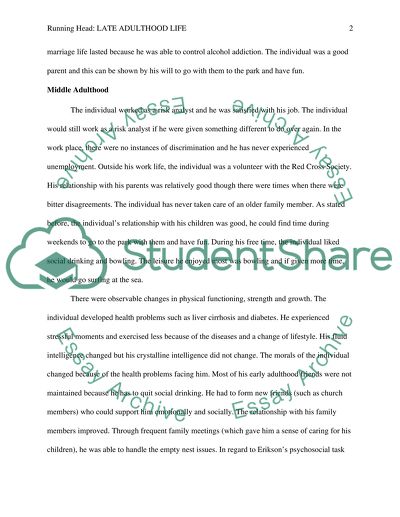Late Adulthood Life Term Paper Example | Topics and Well Written Essays - 750 words. Retrieved from https://studentshare.org/psychology/1443064-late-aduthood-life
Late Adulthood Life Term Paper Example | Topics and Well Written Essays - 750 Words. https://studentshare.org/psychology/1443064-late-aduthood-life.


